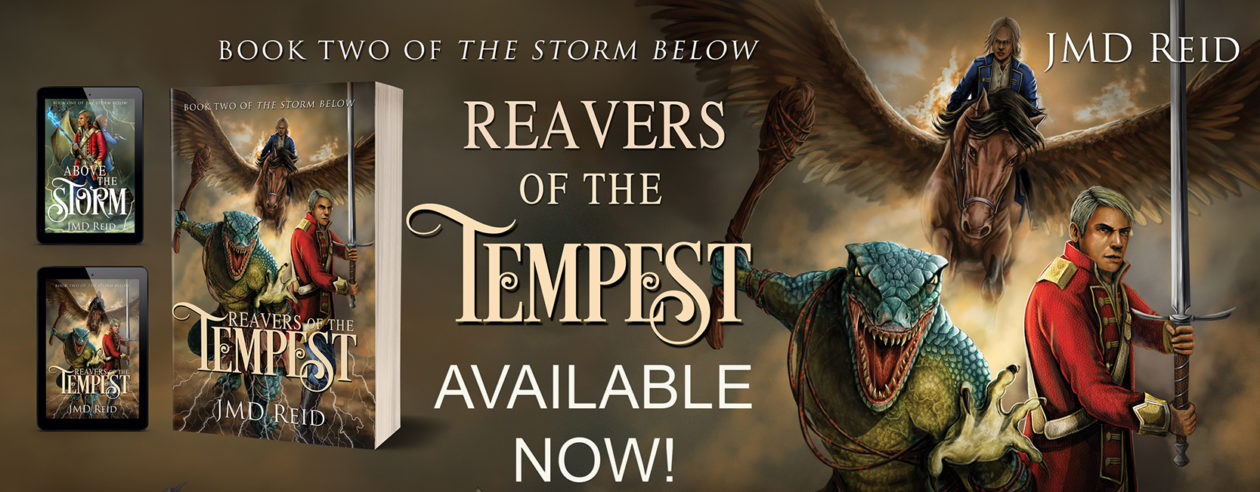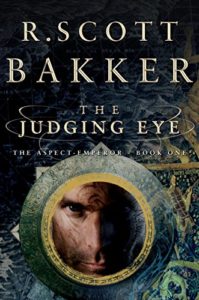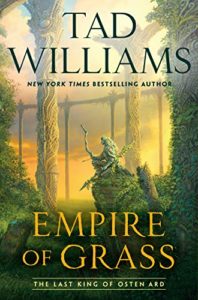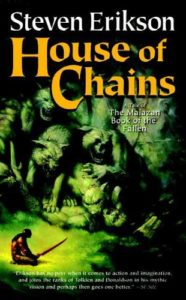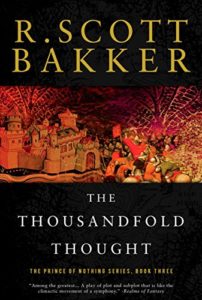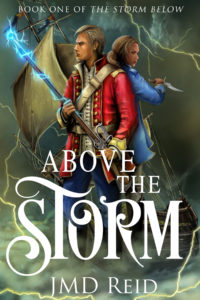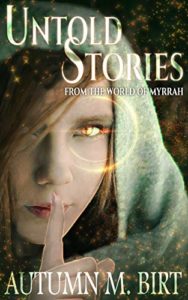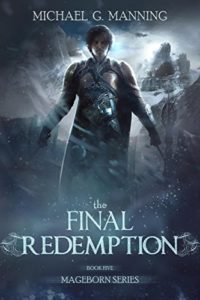Hi everyone! JMD Reid here! Every Saturday, I’m going to post one of my short stories for you all to enjoy! It’ll be up on my blog for a week before it gets taken down and a new story replaces it!
Enjoy!
The Assassin’s Remorse
 “G’nite, Cerena,” Beshie said. “You be careful, you hear? All sorts of ruffians and ne’er-do-wells lurkin’ in them streets when the fog be rollin’ in from the Redmud.”
“G’nite, Cerena,” Beshie said. “You be careful, you hear? All sorts of ruffians and ne’er-do-wells lurkin’ in them streets when the fog be rollin’ in from the Redmud.”
“I’ll be fine, Beshie,” Cerena replied, slipping on her heavy, woolen cloak. It was plain, a deep maroon, and not the greatest quality, but it was the best she and her husband could afford.
“I can have one of me boys walk you home,” Beshie offered her.
Cerena sighed, a little irritated at Beshie’s over-mothering. The matronly woman meant well, but Cerena had walked these streets at night for years and never ran into these “ne’er-do-wells” that Beshie always complained about.
The fog lay thick on the streets of Kash-on-Redmud. The town was called Kash-on-Redmud to differentiate it from the larger city of Kash, as well as Little Kash, Kash-on-Tumblewaters, and Upper Kash. She often pondered her ancestors’ lack of imagination. Surely, there were other names besides Kash.
Cerena shrugged the cloak tightly around her, trying to ward off the creeping chill of the mist as she trudged down the cobblestone street to her home. Exhaustion weighed on Cerena, her feet sore from standing for hours serving the homeless of the town their bowl of watery soup and heel of day-old bread. Every Whiteday evening, since she was a child, Cerena had come to the soup kitchen. She found the work rewarding; it fulfilled her Act of Compassion for the week.
She was a devout follower of the Seven Colours of Elohm, and strove with diligence to follow the Seven Tenets: Compassion, Patience, Forgiveness, Virtue, Honesty, Temperance, and Modesty. Each Tenant was represented by one of Elohm’s Colours: Compassion by Orange and Patience by Yellow. Green for Forgiveness and Red for Virtue. Honesty, White; Temperance, Blue; and Modesty, Purple. Only when all seven Colours are balanced in your life, can true freedom be found, the catechism went. Cerena liked to think she had a good balance. She wasn’t perfect, of course, no one was, but she tried her hardest and had been rewarded with a loving husband, a comfortable home, and fast friends like Beshie.
Her boots’ heels clicked on the pavement with each step. One click as her heel touched the cobblestone, then a second click as the ball of her foot came down.
Click-click.
Click-click.
It echoed through the empty streets, half-muffled by the thick fog that rolled in from the river. If it weren’t for the jewelchine streetlamps shining their soft, white light, she’d have been hopelessly lost. She knew her way home—six lamps to Ostler Way, take a right, then twelve lamps to Fishmonger’s Row, turn to the left, and four more lamps would see her to her tenement building.
Jewelchine lights were a marvel. Cerena could remember how dark the streets were as a child before they were discovered. The streetlamps were made using a diamond wrapped with a gold wire. Elohm, in his great mercy, had taught the secret of harnessing the powers of Gems and Metals. Just like there were seven Colours, there were seven Jewels and seven Metals. Each Gem had a certain property: Amethyst for security, Topaz for healing, Ruby for warmth, and Diamonds for light, for truth. Light is the purest form of Truth, banishing the darkness of Dishonesty, the catechism went. The wire provided the power. The purer the metal—with Gold the purest, Zinc the basest, and five others falling in between—the longer the jewelchine would last before the wire burned itself out and had to be replaced. For such an important task as lighting the streets, the Archons had decided to use the more expensive gold wire on the streetlamps, trading a short-term cost for a long-term gain.
There was the rumor of an eighth Jewel: Obsidian. Black as night, and used for only the most vile purposes. It had to be wrapped in the eighth Metal: Black Iron. The Metal found only in the hearts of dead stars that had fallen to the earth. Cerena shuddered at the thought. Only a man so deprived of Elohm’s Colours would dare to use such a thing.
Click-click.
Click-click.
Her contemplation of the jewelchine streetlamps slowly drifted to other thoughts as she confidently walked the foggy streets. She wondered how her husband’s trip to sell his leathers downriver to Ustervin progressed. A nervous pang entered her stomach; she always worried while Asht was gone. He was a tanner, and once a month he would make the day’s journey by pole-boat to do business with the leather merchants of Ustervin. It would take a day or three to sell his work, and then the two-day journey upriver. She missed him desperately when he was gone; their bed felt so lonely without him. But they needed the money his monthly trips brought.
Click-click.
Click-click.
Clack.
She frowned, stopped, and peered back into the mist. Was there someone else in the fog? It was so thick a fool all in motley could stand not three paces in front of her and she’d not even see him.
“Hello?” she asked, her voice tight. Beshie’s warnings lit a small fire of panic in her belly. She clutched at her cloak, pulling it tight around her, and listened. She strained, trying to ignore the blood rushing in her head as her heart pounded to the rhythm of fear.
Nothing. Only the echo of her own words parroting back at her.
Slowly, she relaxed.
Get a grip, woman, she told herself. She suppressed a momentary stab of irritation at Beshie for planting the sparks of fear inside her. Cerena smoothed her cloak, reminding herself that Beshie was just concerned for her safety. Anger is black, is darkness, the very absence of Elohm’s Colours, she repeated the catechism to herself. Weighing down your heart like an anchor. Let go of hate, of all black emotions, and allow your heart to freely soar up into Elohm’s light.
With a deep breath, she kept striding through the fog.
Click-click.
Click-click.
It’s just my imagination playing games with me, she decided as she made the right turn onto Ostler Way. No one is following me.
She tried to gather her thoughts and focus on what needed to be taken care of at home before she could retire and seek the lonely solace of her bed. Asht should return tomorrow unless his business in Ustervin ran that extra day. She reminded herself to lay out her prettiest dress for tomorrow. Her cheeks flushed, thinking on the purple dress that showed just a hint of her bosom. It wasn’t, strictly speaking, within the guidelines of Modesty, but you could be a little immodest with your husband alone in your house; Asht was a passionate man after all, and she enjoyed it when was aflame with desire.
Click-click.
Click-click.
Clack.
Just my imagination, she kept telling herself. She quickened her steps. Only three jewelchine streetlamps before Fishmonger Row.
Click-click.
Clack.
Click-click.
Clack.
She peered over her shoulder. She saw nothing through the white haze except the fuzzy light of the last streetlamp. There were only two lamps to go. Her heart thudded in her chest.
Click-click.
Clack.
Was it getting closer? Another worried glance over her shoulder revealed nothing. Her stalker could be just paces behind her, cloaked in the fog’s white blanket.
Click-click.
Clack.
Her breath came in quick, ragged gasps as panic nibbled away at her thoughts. She reached the twelfth lamp and went left onto her street. Only four more lamps and she’d be home.
Click-click.
Clack.
She started to trot. Whoever followed her was closer.
Three lamps to go.
Click-click.
Clack.
Panic overtook her in a flash, like fire consuming dried tinder. She broke into a run, hiking up her skirt. She was beyond caring that a man might see her ankles and calves, beyond caring about Modesty; she just had to get away from that clack.
Two lamps to go.
She ran faster, her boots slipping on the damp cobblestone. She gasped, struggling to her balance, feet floundering beneath her. She gained sure footing, and raced forward. The last lamp was just ahead. She reached into the pocket of her skirt and grasped the amethyst bound in copper wire—the jewelchine key to the tenement’s building’s front door—tightly in her sweaty fist.
The last lamp flew by, a white blur in the thick mist. Her building loomed out of the fog, welcoming her with promised safety. She took the steps two at a time to reach the porch. She brought the amethyst key to the gemstone lock. A little arc of purple joined the two followed by a mechanical click. She threw open the door, darted in, and slammed it behind her. As she sucked in relieved breaths, she leaned back against the door.
Safe.
It took her a few minutes to regain her composure. She shook; tears ran down her face, mixing with the sweat. Twice, Cerena dropped her key—the crystal thunking on the old, wooden boards of the floor—before her shaking hands managed to put it back into her pocket. She was safe. Whoever had followed her in the mist wouldn’t have the key to the tenement building. The shaking stopped, her breathing slowed, and she wiped her face clean with a frilly handkerchief she produced from her skirt pocket.
It probably was just my own footsteps echoing back at me, Cerena told herself, feeling silly about the entire ordeal now that she was safely inside. She pushed off from the door and mounted the stairs; they creaked and groaned as she climbed, one hand grasping the banner. As she neared the second floor landing, she stepped over the loose runner near the top—the one the landlord refused to fix. “Ain’t nothin’ wrong with it, Missus Ibsin,” he’d grunt to her whenever Cerena would bring it up. “So what if it wobbles some?” She hated talking with him. His breath always reeked of stale beer and his cheeks ruddy with proof of his less-than-obedient following of Temperance.
The floors creaked in front of Cerena. A plain-faced man stood on the second floor landing. Watery, toad-like eyes stared at her and lank hair fell about his forehead. He wore the slightly shabby clothes of a workman: dark trousers and a red waistcoat missing a button beneath a heavy, dark green coat that fell down to his knees.
“Oh, hello, sir,” Cerena said, her voice neutral. She searched her mind, struggling to remember which one of her neighbors he was. “Um . . . I’m so sorry, I can’t seem to remember your name.”
“Quite all right,” he said with a dismissive wave of his hand. “It’s Missus Ibsin, right? Asht’s wife?”
“Yes,” she answered.
His shove caught her completely by surprise. His hand pushed hard square on her right shoulder. Her feet left the steps. For a moment, Cerena was floating through the air. She seemed motionless, staring at the toad-eyed man in disbelief. Her hand reached slowly for the banister like she’d thrust it into thick molasses. Her fingers strained, desperate to grasp the railing and arrest her fall.
Why would he shove me?
Her fingers missed the banister, digits closing on empty air.
Then her back crashed into the middle of the staircase. Pain exploded through her. She grunted, the wind whooshing out of her lungs; her legs flipped over her head as she tumbled down the second half of the stairs. The hard, wooden steps bruised her flesh. She came to a rest sprawled on her back. Her left foot still rested on the stairs, the other lay twisted at a horrible angle.
What in the Black is going on? She was too confused to care about the vile curse. Her head rang too much to feel the pain of her broken leg. She blinked, her body struggling to move and her mind struggling with the stranger’s actions. The stairs creaked. The toad-eyed man descended, his face devoid of emotion.
“Help!” she rasped, struggling to yell.
Surely, one of her neighbors had heard her crashing tumble. She balled a fist and pounded on the wall. His shadow fell on her, blocking out the soft, white light from the jewelchine crystal glowing from the ceiling. His knee came down between her breasts, crushing her lungs. She tried to breathe, desperate to suck in a lungful of sweet air. The entire weight of his body pressed down on her; ribs cracked like twigs. She clawed at his knee, struggling to push him off. She needed to breathe, her lungs burning and her head swimming.
He’s killing me, Cerena realized in utter disbelief. No! I can’t die! I don’t want to lose my husband! She kept pushing at his knee, using every bit of strength she could muster; her face burned as the blood pumped furiously through her veins while her body screamed for air. No, no, no! This can’t be happening! Please! Her husband’s friendly face swam up in her mind—sweet smile, loving eyes. Please, Elohm! I’ve followed the Tenets all my life! Please, give me this one thing! Let me live!
Her strength gave out. The world grew black on the edges, narrowing her vision. Her body ached for air, but it was useless. She could fight no longer. All she could do was stare up at her killer. Never in her life had Cerena hated someone more—a black, corrosive, heavy rage. How dare this man steal my life! It isn’t fair, Elohm!
His eyes were green.
As her heart began to flag, that one thing filled her mind. Green. The Colour of Forgiveness. She was about to die. How could she face the Rainbow of Elohm with hatred in her heart? With a weight dragging her down into the blackness? I can’t! I don’t want to be dragged into the black depths! She gathered every last bit of will she possessed, focused on her killer’s green eyes, and whispered three words.
And then she let go and was swept up by the beautiful, scintillating light.
* * *
Cerena’s lips moved, struggling to speak; her eyes focused intently on the assassin.
Liquid blue pools became black as the life fled her body.
The assassin kept pressing his knee into her chest. He counted calm heartbeats; when he reached one thousand, he was satisfied that she’d died. He studied her round face, the color fading from scarlet cheeks, leaving peaceful beauty staring sightlessly at the ceiling.
What had she tried to say to me at the end? His memory focused on her dull lips—no reddening rouge to brighten them, a modest woman—as they formed soundless letters. It wasn’t a damnation or a curse. The anger had melted out of her face and her eyes had softened right before she’d struggled to speak. A calm acceptance transformed her final moments.
Confused, the assassin walked back up the stairs, found his absorber—a yellow jewelchine that trapped sound in its influence, covering most of the stairwell—and slipped the Heliodor wrapped in Nickel into his pocket. She’d tried to raise a racket, but thanks to this handy jewelchine he’d invented, none of her neighbors had heard a peep.
He descended the stairs, taking care to step over the loose step that would be blamed for Cerena’s death. He paused at the bottom, studying her face—dead, beautiful, framed by golden hair—one last time, trying to puzzle out what she’d tried to say.
It doesn’t matter, the assassin told himself, pulling his gaze away.
On his walk to the tenement building’s front door, he slipped out his Obsidian blade bound in a Black Iron wire. The blade had a lot of nicknames: black tooth, shadowed death, the assassin’s wife. Death by focused light was the sentence for being found with an Obsidian jewelchine, particularly this one.
He touched the lock with the blade, tricking the amethyst jewelchine. It clicked mechanically, and he slipped out into the fog, carefully sheathing the blade. Despite being able to easily slip between a man’s ribs and find his heart, the blade was fragile and easily chipped. That would destroy it. The Obsidian had to be shaped just so, and the assassin did not have the skill to make a new one. The cost of a replacement blade would beggar him. It had taken years, and many deaths, to pay off this one.
With a staggering walk, he stumbled off into the fog, just another drunk coming home from the tavern. The mist wreathed him in a thick, white blanket smothering sight and sound. The assassin’s thoughts drifted—dull lips moved soundlessly; the plump kind that were nice to kiss.
What did she try to say?
He went two blocks too far before he realized he’d missed his turn. A momentary panic shot through him as he struggled to get his bearings in the thick fog.
Pay attention, Eljin, the assassin admonished himself. Plan, think, succeed. His mantra: plan carefully, think everything through, and you will succeed. Thanks to his meticulous care, he didn’t make mistakes, and thus commanded high rates for his work. So stop rainbow watching!
The lapse of situational awareness puzzled the assassin, his mental discipline weakening beneath the question of her final words. What could she have possibly been trying to say with such a calm, almost forgiving, look on her face? It annoyed him when he missed the second turn, and he grew angry at himself for walking past the third.
Plan, think, succeed.
His house was a narrow, tall building, built cheek-to-jowl with the other houses on the street. The assassin had inherited it from his mother when she’d passed away ten years ago. He’d lived in the house alone ever since. Inside it was neat, orderly. He took off his heavy jacket, hanging it carefully on the coat hook, his shoes placed precisely beside the door, and pulled on his felt slippers.
A trapdoor lay in his sitting room beneath a gray, oval rug decorated with seven lines woven in many intricate knots. Each line was a different color, giving the appearance of piety. The assassin gave little thought to the Colours and the uptight God, Elohm.
Descending the narrow, wooden ladder, he entered his dark, dry cellar made of smooth dirt walls. Wooden slats, resting on the hard-packed soil, creaked beneath his feet. By memory, his hand found the jewelchine light; the black was banished by white light. He hung his tools—his wife, the obsidian blade; the absorber; two emerald stunners, each wrapped in black iron wires; a pair of grip-gloves, and his pocket-torch—on a board of cork studded with nails, providing a spot for each tool to rest.
The assassin surveyed the cellar, searching for any minute thing that lay out of place. Plan, think, succeed. A spider formed a cobweb in the corner—wispy, spindly, untidy. He found a rag, killed the spider, and wiped up the clinging silk. Satisfied that everything was in order, he climbed the ladder, closed the trapdoor, and repositioned the prismatic rug.
He washed the cobwebbed cloth in his sink and left it to dry before he climbed the stairs and found his bedroom. He readied himself for sleep precisely. He dropped each article of clothing into his hamper before pulling on a clean nightgown. Then he drew back the quilted duvet and crawled beneath. Sleep came the moment his head rested on his pillow.
* * *
I forgive you.
The assassin jumped awake, nightgown drenched in sweat, heart pounding, lungs heaving. The dream lingered in his mind—dull lips struggled to speak; blue eyes widened black. Soundless words echoed in his mind.
I forgive you.
He stumbled downstairs into his kitchen and his hands trembled as he filled up a clay cup with water from his jewelchine kitchen sink. The assassin downed the liquid in a single gulp before filling another cup. His paroxysms spilled water as cold as ice, as death, across his hand. He concentrated, forcing his hand to stop shaking. He drained another cup, carefully placed it back into his cabinet, then climbed the stairs, and returned to his bed.
* * *
The assassin woke as the first rays of morning peeked into his room. No more dreams had plagued him after he’d returned to bed. Last night was just an aberration, he told himself as he dressed in his sober clothes before making his bed. To break his fast, he picked a tomato out of his garden, sliced it thinly, and fried it with two eggs. After eating, he cleaned his dishes, wiped down the counter, and took the leftover food to his mulch pile.
He had a short walk to his jewelchine shop. On the way, the assassin passed the same, familiar faces. He nodded to Master Tosner and Master Isthen as they sold their fruit and meat pies on the street corner, gave Ostin a polite nod while giving his nightsoil cart a wide berth, and shook hands with Master Hron as he smoked a cigar before his business, Property and Life Insurance. It lay next door to the assassin’s jewelchine business.
Often, it amused the assassin that none of these men knew the real person who lurked behind his mild-mannered mask. To them, he was just a jewelchine smith—boring, unremarkable, trustworthy—a paragon of Elohm’s Colours. He was honest with his customers, dressed modestly despite his apparently successful business, was temperate in his behavior, compassionate enough to give to soup kitchens, forgave other’s their trespasses, was virtuous in his habits, and only patience could allow a man to craft delicate jewelchines. He played the farce, mouthed their catechisms while thinking his own: Think, plan, succeed. A sloppy assassin was a dead one. Whether by treacherous associates, vigilant targets, or sorrowful executioner, the end was the same.
He unlocked his shop’s door and threw wide the drapes covering his storefront. He examined the shelves, making sure every jewelchine was in its proper place and in working order. Satisfied, he entered his back room and, with great care, set out his jeweler’s tools. First, he set about repairing a broken aquifer, carefully bending gold wires around a deep-blue sapphire. The wires had been damaged, stopping the gem from condensing water out of the air. It should only take the assassin’s practiced fingers half the morning to replace the delicate wire.
I forgive you.
Hands shook; gold wire snapped, ruining the morning’s work. Suppressing his annoyance, the assassin set his pliers down. Plan, think, succeed, he berated himself. He dropped the two broken halves of gold wire into a jar to be melted down later for new wiring, and snipped a new length from a spool. He took a breath then returned to the delicate work of bending the wire in the specific pattern to channel the gem’s power. The way the gem was cut and the way the wire was wrapped and bent instructed the jewelchine on how to manifest the inherent energy of the gem, channeling the power into useful tasks. It was an art form—figuring out the angle of the facets, the degree at which the wire had to be bent, and just where the wire would lay upon the jewel. The assassin had found moderate success at inventing a few devices to aid his nocturnal work.
By midday, though his back ached from bending over, his mistake had been repaired. He stretched protesting muscles while his stomach rumbled. He put his tools in their proper spots, locked up his shop, and walked to a small, open-aired cafe at the street corner. He bought his usual ham sandwich on rich, black bread along with the midday paper. Unfurling it, he scanned the headlines as he took a large bite—salty ham, sharp cheese, and spicy mustard warred in his mouth.
“Woman found dead in tenement,” the headline read. He moved down to the article. “Late last night, Cerena Ibsin was found dead of an accidental fall in her tenement. Neighbors blame a loose step that her landlord had long refused to repair. Friends spoke of Cerena’s generous heart. ‘Every Whiteday evening she was helping out at my soup kitchen,’ a tearful Beshie Corvan reported. Cerena was survived by her husband, Asht, who . . .”
Pale lips, blue eyes. I forgive you.
Bile rose in his throat. Pushing back from the table violently, the assassin bolted for the gutter. In a trickle of dirty water, he emptied his stomach with three heaves. He watched the green-yellow chunks washed away in the filthy current with the other effluence.
“You a’ight, Eljin?” the cafe owner asked, picking up the assassin’s chair that he’d knocked over in his haste.
“Yes, yes, Kefin,” the assassin muttered. “I was out in the fog last night.”
The owner shook his head, red jowls swaying beneath his chin. “Gotta watch out for them bad vapors. I always wear a cheesecloth ‘round my mouth. Strains out the bad vapors, it does.”
“I’ll keep that in mind. Thank you.”
Kefin handed the assassin a cup of water. He rinsed his mouth and spat the bile into the gutter.
What is wrong with me? After so many years, so many deaths, the assassin was at a loss as to why Cerena Ibsin would affect him even a little. He’d killed his heart years ago. What was so special about one housewife? She is hardly the first wife I’ve killed for a husband.
Blue eyes softening with forgiveness. Forgiving eyes widening into death.
A creak drew his attention, a wooden sign swinging in the breeze, a faded tankard painted on the splintered wood. Just one drink, he thought. What is the harm? The bar was nearly empty at midday, the proprietor snoring in a chair, his face ruddy with drink. Barley whiskey, cheap, burned the assassin’s throat after he’d roused the barkeep. The fire in his guts drove away those black-damned eyes. Slapping three brass glimmers on the counter, the assassin felt his composure restored.
Work went a little slower that afternoon. This wasn’t like him; he rarely drank and never in the afternoon. Maybe a touch of sherry to drive out bad vapors on a particular foul night, or a glass of port when his cousin visited.
I forgive you.
Why? he asked the blue eyes.
Pain flared; half-a-finger of tin wire stuck into the meat of his thumb. Blood welled dark-red around the metal then trickled down his digit. A bloody tear shed.
The bell tinkled, announcing a customer entering his shop. The assassin grunted as he pulled the wire out, his thumb throbbing harder. He wrapped his wound in a handkerchief and walked through the beaded partition to the counter.
“Good day,” the assassin said to the man and a woman in the shop.
The man had a friendly smile as he sauntered up to the counter while a bored look filled the woman’s dusky face, her plush lips pursed as her dark eyes scanned the shelves of jewelchines. The pair couldn’t have been more opposite: the man dressed in the rough clothes of a tradesman, hands calloused from heavy work, his skin pale, a local. Her dusky skin named her a Terysian from across the sea, her clothes rich-red brocade, low-cut to display a magnificent bosom. Not even the whores in Ustervin revealed so much flesh. The assassin could not stop his eyes from admiring her lushness. Terysians didn’t follow Elohm and his Rainbow of Morality.
“Hello, Master Ibsin,” the assassin greeted the man, his client. “How’s your day been?”
“Sad,” he answered, though not a hit of grief afflicted his friendly face. “My, uh, friend and I returned from Ustervin this morning to find that my wife had a tragic accident.”
The assassin glanced at the woman, evaluating her: beautiful, expensive clothes, jewelry—costly to stay “friends” with.
“May the Rainbow of Elohm carry your wife’s soul to the heavens.” The platitude sounded wrong when the assassin spoke them; a mockery of Cerena’s life.
Blue, forgiving, dead eyes stared at him.
“Are you all right?” Ibsin asked the assassin; he sounded concerned.
A skilled liar, the assassin guessed. A heart as dead as mine beats in his chest.
“Yes, yes,” the assassin answered, gathering his thoughts. “You’re here to pick up your pocket-torch, right?”
Ibsin nodded. “I believe we settled on two gold beams?”
The assassin glanced sharply at the woman, who was still browsing his shelves. Two gold beams, more than a month’s salary for a laborer, was far too much coin for a simple pocket-torch jewelchine.
“Don’t worry about Jasymina, Master Eljin,” Ibsin said with a dismissive wave. He produced two large, golden coins and slapped them counter.
The assassin’s hand darted out, scooped them up and pocketed them. From beneath the counter, he produced a diamond gem wrapped in zinc, the cheapest of metals, and handed it to Asht. The “grieving husband” nodded then motioned to Jasymina.
She swayed to him as he marched to the door. “I bet you could sue your landlord for neglecting to repair the step, Asht,” she purred, taking his arm. “That must be worth as much as her life insurance.”
Ibsin laughed; it was rich, full of life. “You might be right. I know a barrister . . .”
The door closed behind them. Disgust filled the assassin, clinging like muck to his soul. Killed so her husband could support his mistress. The assassin froze. Why do I care about why he wanted her dead? He patted his pocket, feeling the reassuring weight of the two gold beams.
* * *
Cerena stared up at him, her blue eyes shining with forgiveness as his knee pressed on her chest. Her face was turning red as she struggled to live. She was beautiful in a natural way, lacking any enhancement by immodest cosmetics. Her face was round, nose dainty, lips plump, and hair golden silk.
As pretty as Jasymina.
The assassin pressed harder. Reminding himself, you were hired to kill her. Don’t go getting soft now, Eljin. Ribs snapped like dry twigs. Her dull-pink lips struggled, soundlessly speaking.
Only this time, sound issued from those pale, wriggling lips: “I forgive you.”
“Why?” he asked her, pressing harder with his knee.
Coins clinked behind him.
Fear rushed through him, cold as a winter’s gale. His hand darted by instinct to draw his wife. He spun with the Obsidian dagger held low. Cerena stood behind him, a nimbus of rainbowed light surrounding her, two gold coins held in her hand.
“Is this what my life was worth?” she asked, blue eyes glistening. “You stole my happiness, my future, for two little bits of metal?”
“I . . .” The words died in his throat.
“You stole me from my husband, my friends, my family. You stole me from everyone that cared about me, loved me. All for these coins?”
The assassin floundered as her blue eyes held his gaze, pleading for answers. “It’s what I do.” The answer sounded lame—unsatisfactory, insulting, cheapening—the moment it left his lips.
“I see,” she sadly whispered. “I was simply a nail to be hammered? A fish to be gutted? A cowhide to be tanned?”
His mouth opened, but he found no words to speak, no excuse worth the cost. He never thought about why he killed. He was good at it, and the rewards supported his jewelchine tinkering.
“Was my life so worthless you can’t even answer me?” The pain in her words tore at the assassin’s soul. Guilt—crushing, suffocating guilt—filled his heart, squeezing it with an iron grip, trying to arrest its beat.
“It was your husband that wanted you dead,” the assassin gasped, clutching his chest as his heart warred to stay alive. “Not me. I didn’t kill you! It was your husband! I was just his tool—the hammer wielded by his hand. It wasn’t my fault!”
“Was it my husband that pushed me down the stairs? Did he crush my lungs with his knee and stare me in the eyes while I died?”
The assassin bolted awake, his nightgown stuck to him with sweat. He raced downstairs into his orderly kitchen and tore open cabinets. He threw plates and crockery to the side to find his cooking sherry. He grasped the green bottle and didn’t bother with a cup. He took a long swig of the wine. Then a second deep swallow, the drink burning his insides, warring with the guilt crushing his heart.
“It was your husband!” he sobbed at the blue eyes. “He killed you! Not me!”
I forgive you.
“Then leave me alone! Haunt your black-damned husband! He killed you!”
I forgive you.
“I didn’t kill you! I don’t need your forgiveness!” He threw the bottle at the blue eyes, striking a crock of honey. Both smashed into unsightly, untidy shards. The assassin didn’t care. He only shrieked incoherently at those eyes.
* * *
The assassin dressed in dirty clothes; none were clean in his house. Unsteady with drink, he grabbed the first pair of trousers he found on the floor and pulled them up his leg. He tottered on one foot, the room spinning around him, and fell back onto his bed. He grunted and continued dressing. He found a stained shirt and a greasy waistcoat and did the buttons up crooked. He stumbled down the stairs, catching himself twice before he tumbled head-first. He snagged a half-empty bottle of whiskey left on a shelf in the sitting room, took a swig, then kicked the rug aside that hid his cellar. Bottle in hand, he descended into the black hole, the drink weighing him down into the darkness.
As he stared at the cork board from which hung his assassin’s tools, he struggled through the fog of his drink to remember what items he would need for the night’s work. His wife, of course. He slammed the obsidian dagger into its sheath. Then he snagged his diamond pocket-torch, the absorber, and his pair of leather grip-gloves made with tiny Emeralds bound with Aluminum wire that adorned the glove’s palm and fingertips.
I invented these, right? The assassin asked himself, staring bemused as the light glinted in the emeralds’ facets. Pretty sure I did.
He made it halfway down his street when he realized he’d forgotten the igniter. Plan, think, succeed, he berated himself. He struggled to focus through the fog of drink. Part of him knew he shouldn’t imbibe the alcohol, but it shrouded him from those forgiving blue eyes.
No more mistakes, he berated himself. You need this job, Eljin. It had been the first nocturnal job he’d taken in the weeks since the Ibsin job—the assassin didn’t like to think about that one; the blue eyes always appeared when he thought of her. Desperation drove him to accept this one. I could make some money again if those damned, forgiving eyes would go haunt Ibsin instead.
He felt ill while he’d talked to Missus Kithan—the same roiling, nauseating inferno that consumed his stomach every time he talked with a potential client—but he needed the money. Creditors were pounding on his door: rent was due for his store, vendors needed payment for materials, and his customers demanded refunds for shoddy work. The two gold coins burned in his pocket, weighing him down with every step.
He should just part with them, couldn’t. Her eyes castigated him every time he tried.
He got lost on the way to Salmon Row. The helpful proprietor of a bar gave him directions, as well as selling him a bottle of cheap whiskey. Off lurched the assassin down the streets, stumbling from one side to the other.
An hour later than he’d planned, the assassin found the house. It was large, constructed of river stones fitted together with mortar. A tall garden wall encircled the house. Green tendrils crept over the top of the wall and hung down the bricks, reaching for the street.
The assassin pulled on his grip-gloves. With ease, he climbed up the wall. The problem came when he tried to hook his right leg over the lip. He balanced precariously atop the narrow wall, struggling to get his legs to cooperate. His foot kept catching on the stone lip. He gave a jerk and his leg lurched over too hard. For a moment, he flailed his arms in a useless attempt to maintain his balance before he fell heavily into a rhododendron bush.
Stems scraped his face as he struggled to escape the bush, lavender petals clinging to his clothing. He stumbled out, tripped forward, and fell onto soft grass. He patted himself as he stood and realized he’d dropped something important. With a grunt, he strode back into the bush with drunken determination to find the bottle of whiskey he’d dropped.
He found the bottle just in time, feeling the blue eyes nearing. He took a drink to ward them off. Then a second for good measure. The assassin tried to remember why he hated whiskey; it was such a marvelous drink. He whistled as he staggered to his target’s back door.
He found it locked.
He stared stupidly at the knob then twisted it again. It refused to turn, as stubborn as he was. He grunted, the metal rattling. He grunted. Now what? he asked his foggy mind. There were windows he could break. He frowned. That didn’t feel right to the assassin. Don’t I have a tool that can open doors for me? He patted his pockets, and felt something hard. Igniter? I could burn the door down. Absorber? It would keep anyone from hearing me break open the window. He touched the dagger.
Feeling like a motley fool, he drew his wife and casually touched the black tip to the door’s jewelchine lock. Purple light arced; the lock clicked. With a triumphant shout, he entered the house. A cat yowled and hissed.
The bottle fell out of the startled assassin’s hand and clattered as it rolled across the wooden floor.
He almost fell over trying to grab the whiskey. Once it was securely in hand—well, once he’d taken another deep, fortifying drink of the wonderful liquid—he peered around, trying to get his bearings.
Have to find the stairs, he remembered as the cat hissed from beneath a couch.
He tried to walk lightly, but his feet kept crashing onto the wooden floors no matter how much he concentrated on gentle steps. He was thrilled to have only tripped once while ascending to the top of the stairs.
His target, Missus Kithan’s husband, slept soundly in a large bed next to his young mistress. Both snored. Several wine bottles littered the room and a half-smoked cigar lay on the floor. The bed was rumpled, the occupants naked.
The assassin struggled to remember Missus Kithan’s instructions. “I want them to burn. Him and his hussy,” she’d cackled. “He’s always fallin’ asleep smokin’ his darkness cigars! Just set the bed aflame.”
That’s why I brought the igniter.
Pulling it out of his pocket, he concentrated. The gem glowed with an inner fire, reddening the copper wire that bound it. He bent down to touch the gem to the tangled blankets when the mistress rolled over, golden hair shimmering in the moonlight.
Round face, framed with gold hair, blue eyes staring up with forgiveness.
He froze. She found me. The assassin’s hand shook. Just touch the cloth, he ordered his hand. Do it!
The blue eyes held out her hands; a pair of gold coins gleamed around pale, dead fingers. Is this what my life was worth?
Why are you hesitating, Eljin? thought the assassin. Just do it! Touch the cloth. The hand refused to move. It’s not your fault. You’re not killing them, not really. It’s Missus Kithan and Mister Ibsin and all the others who hired you over the years. You’re the hammer. They’re the hammerer. If you didn’t do it, they’d just find another tool.
Was it my husband who pushed me down the stairs? the blue eyes asked.
“No.”
The assassin fled, racing down the stairs. The cat yowled, scared out of its fur and whiskers as he barreled through the parlor. He burst out of the house, scrambled over the fence with drunken desperation, and pounded down cobblestone streets. Terror and guilt whipped at his heels, spurring him to race faster and faster. He ran until his sides ached to bursting and the whiskey in his belly rebelled, vomiting out of his mouth into the gutter.
“I didn’t kill you!” he sobbed over and over, bile bittering his tongue, his soul whipped raw by the tempest of his guilt. “Your husband killed you! Not me!”
I forgive you.
The tempest dissipated. Those three words banished the storm inside him. A placid calm, the lull in a titanic storm, descended on the assassin. She forgave me. The assassin looked up at the sky, dark clouds parting. The green moon, Elohm’s Forgiveness, shone down on the assassin.
How could her husband have wanted to kill her? the assassin wondered. She was such a loving woman. She found the strength to forgive me. Why did he deserve to have happiness and love? Why did he deserve to live and not her?
Why did he deserve to live?
* * *
For days, the assassin stalked Cerena’s husband, her real killer. I didn’t kill her, he would tell himself, fixing his green eyes with mad fervor on the friendly face of Asht Ibsin—the mask hiding the callous monster from the world. The assassin didn’t need the drink any longer; he didn’t need to hide from her blue eyes in a haze of alcoholic fumes. He knew what the eyes needed: vengeance, justice.
Ibsin would die. Then Cerena’s soul would be able to rest.
It disgusted him watching Ibsin cavort with his hussy, Jasymina. They spent their days shopping, buying the disgusting slattern more clothing, more makeup, and more sweet unguents. Their nights were spent carousing in expensive wine shops, the ones the wealthy merchants or itinerant noblemen patronized. Ibsin had not a care in the world, his happiness bought by his wife’s murder.
For a week, the assassin waited for his opportunity, becoming more and more delighted with the slattern’s behavior. Ibsin had begun to bore Jasymina, her lustful gaze roaming to new conquests. He watched from the back of the wineshop as Ibsin walked in, looking for his mistress. He found her draped on a wealthy merchant’s arm. The assassin smiled; she’d found someone with deeper pockets. For the last few nights, drink’s fog had kept Ibsin from realizing his Jasymina was seducing her next lover.
The assassin padded after the dejected Ibsin, his hand wrapped around the hilt of his dagger. Swollen bruises marred Ibsin’s face from the chastisement he’d received at the hands of the merchant’s guard when he’d objected too vociferously about Jasymina’s abandonment.
The assassin wondered if the guilt gnawed at the tanner now. You killed your wife for that slattern and she tossed you aside like a torn petticoat. He wanted to laugh, to revel in Ibsin’s humiliation, but that might give him away.
Plan, think, succeed.
The assassin thought it was fitting to kill Ibsin in the very tenement stairwell where Cerena had died. Where Ibsin—through the assassin—had murdered his wife.
Ibsin reached the door, pulled out his key, and touched the amethyst to the lock. The soft, white glow of the jewelchine streetlights revealed no witnesses. Like a haunting ghost, the assassin drifted to the tenement. Ibsin pushed the door open. The assassin slammed into him, throwing the tanner into the tenement. Ibsin cried out in alarm, his foot tripping on the stoop, and fell into a heavy heap on the wooden floors.
The assassin drew his wife, sleek, black, gleaming deadly in the white light of the stairwell.
“You?” Ibsin blinked drink-bleared eyes in confusion. He froze as the assassin fixed hard, green eyes on him. “W-wait! I can pay you more!”
He scrambled back before the assassin’s slow advance. The tanner pulled a thick, steel knife from his boot, a heavy blade used to cut hides. A single kick, aimed with care, connected the tip of the assassin’s booted foot to Ibsin’s wrist and sent the knife clanging to the floor.
“I’ll pay double your rate,” Ibsin blubbered. An acrid-sour odor filled the air—nightsoil. The assassin’s eyes flickered down, the breach of the tanner’s pants mud-brown. Yellow piss puddled on the floor.
The assassin hovered over the murderer, his obsidian wife raised. Ibsin’s eyes fixed on the black blade. All he had to do was thrust his dagger, slip it between the man’s ribs, and find the monster’s treacherous heart. Then she shall be avenged! Then she shall stop haunting me.
“You killed her,” the assassin hissed.
“Who?” squealed Ibsin.
“Your wife!”
“N-no, you did!” Tears ran from his gray-blue eyes. “I didn’t kill her.”
“Yes you did! You sought me out! Walked into my shop! You hired me!” Words paused for a ragged inhalation. “You used me like a tool! A hammer!” Spittle rained down on Ibsin’s face. “A hammer to pound the nail into your wife’s heart!”
“B-but you killed her! I just gave you the money. I never would have hurt her myself! She was just in the way of my happiness! But I didn’t kill her. That was all you! Please! There’s still some of the insurance money left! And I have a settlement coming. My barrister tells me I have a huge negligence case against my landlord!”
“I don’t want your money!” roared the assassin. “Cerena doesn’t want your money! She wants vengeance on the man who killed her!”
“That was you! Not me! Please! Elohm save me! I didn’t kill her. I’ve never even harmed a freckle on her body!”
The words struck the assassin—the sound of ribs cracking filled his mind, hands frantically trying to pry his knee off her chest, a beautiful face turning red, Cerena fighting desperately to live.
It crystallized in an instant for the assassin. He never harmed a freckle on her face . . . But I did.
“No, we killed her,” the assassin admitted. He felt something fall from his heart—a great weight. I killed so many, the Colours help me. There is so much blood on my hands. “You were the mind, the thought that swung the hammer, Ibsin. You wielded me, but I’m not a mindless tool. I’m not a hammer swinging with no control over where I land, which nail I pound into the wood. I could have said no. I could have stopped you or warned her. I could have done any of a hundred things. Together, we murdered her.” The tear welled in his green eye, rolling down his cheek. “I’m so sorry, Cerena.”
Blue eyes whispered back: I forgive you.
Eljin dropped the black blade. It tumbled, light glinting bright on its irregular surface. With a tinkling crash, it splintered into three large shards on the faded floor.
“She forgave us,” Eljin told Ibsin. “I don’t know why. Elohm knows we deserve her curse, her anger.”
“She was a kind woman,” Ibsin blubbered.
Fishing into his pocket, Eljin pulled out two gold beams, each stamped with Elohm’s rainbow, and dropped them next to his broken blade. Then he turned, and walked towards the door.
Cerena was a better person than me. All I ever did was take. Eljin knew it was time to find something else to do with his life, find some way to repay Cerena for what he’d stolen from her. Maybe this is why she forgave me, he mused, to teach me to be a better man.
Ibsin’s dagger slid easily into Eljin’s back, slipping through the ribs and piercing his lung.
“You killed her, not me!” Ibsin howled as Eljin pitched to the floor. “I would never harm a freckle on her! Never!”
Cold stole over Eljin as he rolled over onto his back. Ibsin loomed above him. Gripped in his white-knuckled hand was his tanner’s blade decorated with Eljin’s blood. The chill swelled through him as Ibsin raved, wild-eyed. The words didn’t matter; Eljin was beyond them. Anger clenched his heart. I spared this man, and this is how he repays me?
Cerena appeared, riding down from the heavens on a rainbow of light, and stood above him—light opposing her husband’s darkness. A sad smile graced her lips as she stared down at Eljin with soft eyes. Her murderer.
“How?” Eljin croaked to her. “How could you forgive me?”
“How what?” Ibsin cackled. “What are you saying!”
“Anger is black, is darkness, the very absence of Elohm’s Colours. It weighs down your heart like an anchor,” she answered. “Let go of hate, of all the black emotions, and allow your heart to soar up into Elohm’s light.”
“That’s . . . it?” The words were growing harder to bring forth, his mouth coppery with blood.
“That’s what?” demanded Ibsin; Eljin ignored the monster’s mad face, fixing instead on the plain beauty of Cerena’s.
“That’s it, Eljin.” Her blue eyes were soft, forgiving, compassionate.
I robbed the world of an angel.
Eljin looked at Ibsin and spoke three words. The chain snapped. The anger plummeted into the darkness. Eljin’s soul rose up into the light.
The END
If you want to stay informed on my writing, sign up for my newsletter!
If you enjoyed this story and like to support my writing, you can leave a review or buy The Assassin’s Remorse from Amazon, Amazon UK, Amazon Canada, Amazon Australia, Amazon Germany, Amazon Japan, Amazon Italy, Amazon Spain, Amazon France, Amazon Netherlands, Amazon India, Amazon Brazil, Barnes and Noble, iTunes, Kobo, and Smashword!
The Assassin Remorse takes place in my Jewel Machine Universe!
~~~~~~~~~~~~~~~~~~~~
To save the skies, Ary must die!
If you love the works of Brandon Sanderson, Robert Jordan, George R.R. Martin, R. Scott Bakker, and Steven Erikson, then check out my first ever Fantasy novel!
You do not want to miss out on this awesome adventure!
You can buy or burrow Above the Storm today!
